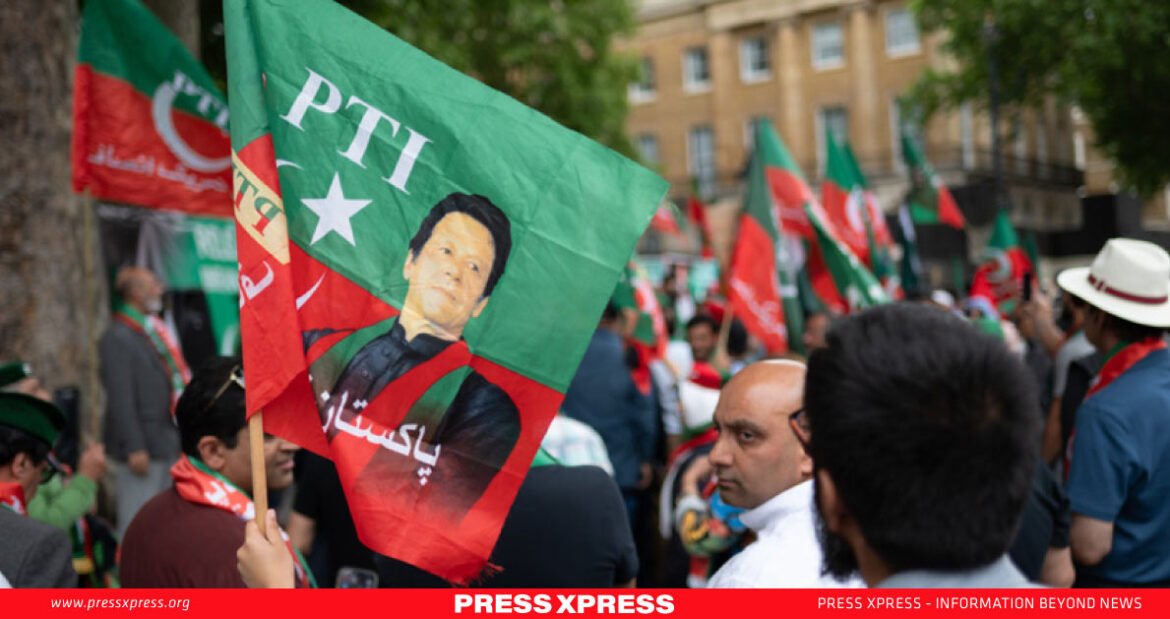Pakistan’s political landscape is on the brink of a potential upheaval following the government’s announcement of plans to ban the Pakistan Tehreek-e-Insaf (PTI), the country’s most popular political party led by imprisoned former Prime Minister Imran Khan. This move, however, faces significant legal hurdles and has exposed a growing rift between Pakistan’s judiciary and its powerful military establishment.
On Monday (July 15),Pakistan Information Minister Atta Tarar declared the government’s intention to ban the PTI, labeling it “a direct threat to the fabric of our nation.” Deputy Prime Minister Ishaq Dar later tempered this statement, suggesting the decision wasn’t final, while still accusing the PTI of being “foreign-funded.”
The timing of this announcement is crucial, coming just days after Pakistan’s Supreme Court affirmed the PTI’s legitimacy and granted it additional seats in the National Assembly. This judicial decision appears to have prompted the government’s retaliatory ban proposal.
This sequence of events highlights an intensifying power struggle between Pakistan’s judiciary and its military, which has long been the country’s dominant political force. Historically, civil-military relations have been the primary source of political tension in Pakistan. However, the current scenario presents a new dynamic: a civilian government aligned with military leaders, pitted against a judiciary increasingly asserting its independence.
The judiciary’s role in Pakistani politics has often been contentious. A notable example was the 2007 confrontation between the Supreme Court and then-military dictator Pervez Musharraf, which culminated in widespread pro-democracy protests. While the current situation differs, with the military no longer in formal power, the underlying tensions persist.
Since Imran Khan’s ouster as prime minister in April 2022, the state apparatus, influenced by the military, has intensified its crackdown on Khan and the PTI. This has resulted in multiple, potentially politically motivated charges and convictions against Khan. The PTI has frequently sought judicial relief, with mixed results from the Supreme Court.
The current judiciary-military confrontation is particularly concerning for several reasons:
- The civilian government’s alignment with the military reduces checks on military influence over the courts.
- A personal vendetta between Khan and the army leadership has escalated tensions, with Khan criticizing the military from prison and PTI supporters targeting military facilities during protests.
- A shocking letter from six High Court judges in March revealed allegations of extreme interference and intimidation by military intelligence, including claims of abduction, torture, and surveillance of judges and their families.
This power struggle diverts attention from other pressing issues facing Pakistan:
- A resurgence of terrorism, with a recent attack on an army base in northwestern Pakistan killing at least eight troops, despite a newly announced counterterrorism plan.
- Severe economic challenges, with Pakistan relying on critical support from the International Monetary Fund (IMF). The IMF has emphasized the need for political stability, suggesting that ongoing instability could jeopardize future financial assistance.
As Pakistan grapples with these multifaceted crises, the escalating conflict between its judiciary and military threatens to exacerbate existing problems and potentially trigger a new phase of political instability. The ramifications of this institutional clash extend far beyond politics, potentially impacting Pakistan’s security, economic recovery, and international standing.
The coming weeks will be crucial in determining whether Pakistan can navigate this complex political landscape without descending into a full-blown crisis, or if the ban on the PTI, should it proceed, will indeed spark a new chapter of turmoil in the country’s tumultuous political history.


